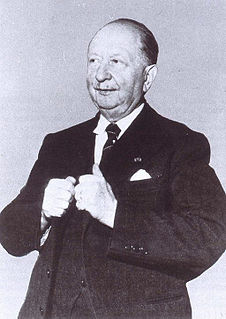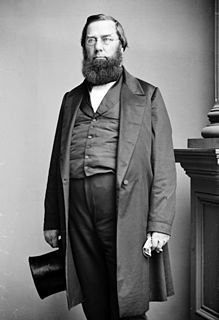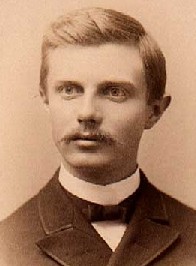 W
WLorenzo Arnone Sipari is an Italian nature writer and historian, author of many studies on the social and environmental history, especially on the origins and foundation of Parco Nazionale d'Abruzzo.
 W
WLowell E. Baier - is an American attorney, successful entrepreneur, and an environmental historian and author. He has dedicated his life to natural resources and wildlife conservation. Throughout his career he has been an advisor to many elected officials and educators, including every successive presidential administration since George H. W. Bush, and has been an active and instrumental member of several national conservation groups.
 W
WWilliam Cronon, FBA is an environmental historian and the Frederick Jackson Turner and Vilas Research Professor of History, Geography, and Environmental Studies at the University of Wisconsin–Madison. He was president of the American Historical Association (AHA) in 2012.
 W
WLucien Paul Victor Febvre was a French historian best known for the role he played in establishing the Annales School of history. He was the initial editor of the Encyclopédie française together with Anatole de Monzie.
 W
WRichard Hugh Grove was a British historian, environmental activist, and one of the contemporary founders of environmental history as an academic field. His prizewinning book, Green Imperialism: Colonial Expansion, Tropical Island Edens and the Origins of Environmentalism 1600–1860 (1995), was considered a pioneering account of colonial environmental impacts and an origin for early western ideas on environmentalism.
 W
WGilbert LaFreniere is an American ecological philosopher, active in the study of geology, ecology, and human impact upon nature.
 W
WEmmanuel Bernard Le Roy Ladurie is a French historian whose work is mainly focused upon Languedoc in the Ancien Régime, particularly the history of the peasantry. One of the leading historians of France, Le Roy Ladurie has been called the "standard-bearer" of the third generation of the Annales school and the "rock star of the medievalists", noted for his work in social history.
 W
WGeorge Perkins Marsh, an American diplomat and philologist, is considered by some to be America's first environmentalist and by recognizing the irreversible impact of man's actions on the earth, a precursor to the sustainability concept, although "conservationist" would be more accurate. The Marsh-Billings-Rockefeller National Historical Park in Vermont takes its name, in part, from Marsh. His 1864 book Man and Nature had a great impact in many parts of the world.
 W
WJoachim Radkau is a German historian.
 W
WMahesh Rangarajan is a researcher, author and historian with a special interest in environmental history and colonial history of British and contemporary India. He is a professor of Environmental Studies and History at Ashoka University. He appears frequently on Indian television as a political analyst. He is also a columnist in the print media writing on wildlife conservation, political and environmental issues. In 2010, he chaired the Elephant Task Force (Gajah) of the Indian Ministry of Environment and Forests. The Task Force was formed to formulate measures for the protection of elephants in India.
 W
WHarriet Ritvo is an American historian who specializes in British history, particularly environmental history and the history of natural history. Ritvo is the Arthur J. Connor Professor of History at MIT and a member of the Program in Science, Technology and Society, and she was the head of MIT's History Faculty from 1999-2006.
 W
WSverker Sörlin, born 6 August 1956 in Åsele, Västerbotten, is a Swedish historian of ideas, professor in environmental history, and writer.
 W
WFrederick Jackson Turner was an American historian during the early 20th century, based at the University of Wisconsin until 1910, and then at Harvard. He was known primarily for his "Frontier Thesis". He trained many PhDs who became well-known historians. He promoted interdisciplinary and quantitative methods, often with an emphasis on the Midwest. His best known publication is his essay "The Significance of the Frontier in American History", the ideas of which formed the Frontier Thesis. He argued that the moving western frontier exerted a strong influence on American democracy and the American character from the colonial era until 1890. He is also known for his theories of geographical sectionalism. During recent years historians and academics have argued frequently over Turner's work; all agree that the Frontier Thesis has had an enormous effect on historical scholarship.